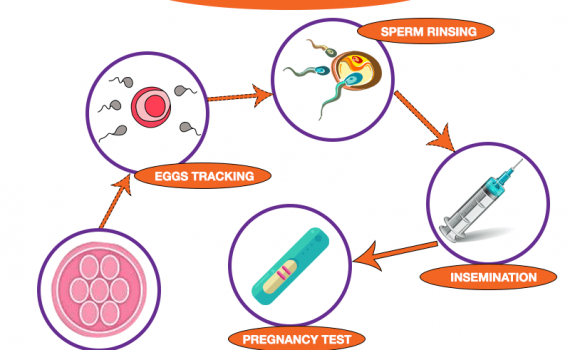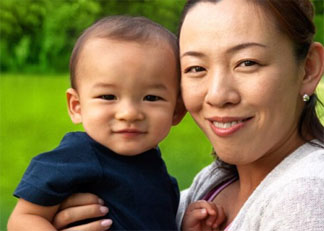What is Intrauterine Insemination and How it is Performed?
Category : blog
Intrauterine insemination (IUI) is a first line procedure where the men sperms are directly introduced into the women uterine cavity during her ovulation period which gives the hope of producing a pregnancy.
Your fertility expert may recommend you to undergo for an IUI procedure with the goal of increasing the number of sperm that reach the women fallopian tubes to increase the chance of fertilization. This is a procedure which can also be used as an additional intervention if the traditional method has been failed to produce a pregnancy after a few cycles. IUI is the best procedure for same-sex couples or single women who wish to become pregnant without a male partner.
How Intrauterine insemination (IUI) is performed?
Before your fertility expert precedes the IUI procedure, they first prepare the men sperm specimen in which the laboratory expert will wash the semen sample to separate the semen from the seminal fluid. The fertility expert will ask the male member to identify his specimen to ensure that it is the correct one. Once ready, the experienced and skilled physician will introduce a speculum into the women vagina to visualize her cervix.
The fertility expert will use the mild cleaning solution to clean the cervix and surrounding vaginal tissue. After that, the fertility expert will pick a small amount of the washed sperm into a syringe with a tiny catheter attached. The catheter is passed through the women cervix and then the sperm injected into the women uterus to facilitate fertilization. The catheter and speculum will then be removed and the women may be asked to rest for a short period of time.
The IUI is a procedure which can be performed with or without medication. For patients who need the ovulation-stimulating medication, they require careful monitoring to determine when the eggs are mature. The IUI procedure will then be performed around the time of the women ovulate which is usually 24 to 36 hours after a surge in the LH hormone indicating ovulation.
IUI is a procedure where time plays an important role to attain the positive results of the procedure and this is more important than natural intercourse. This is a painless procedure and does not require any anesthesia to perform it. After the completion of the procedure, the women may experience mild cramps which will be taken care by giving her some pain-killer medications that have been prescribed by the fertility expert. The fertility expert will advise the women to lie down for 15-20 minutes and after that, she can resume her daily activities. This is not a procedure but the semen washing may take an hour and a half.
Why intrauterine insemination (IUI) procedure is recommended?
There are various reasons for which your fertility expert will recommend the IUI procedure. The following are some example:
- If the sperm count, motility or shape of the male member is less than adequate then IUI is the best procedure which may give the sperm a better chance at meeting the woman’s egg.
- If the woman’s cervical mucus is scant or thick and tacky which should normally be thin and stretchy, in such case, IUI procedure will allow the men sperm to bypass the mucus.
- Cervical scar tissue may hinder the sperms’ ability to enter the uterus due to some past procedures than IUI is the best option to achieve successful results.
- A single woman or same-sex couple can use donor sperm to conceive a child.
- IUI is a less invasive and less expensive procedure as compared to in vitro fertilization (IVF).
There are some case in which the fertility expert will not recommend IUI procedure such as women who have severe disease of the fallopian tubes or a history of pelvic infections etc. are not the right candidate for the IUI procedure, as well as women with moderate to severe endometriosis are also not recommended to undergo for the IUI procedure.
Expectations after IUI procedure
After the completion of the IUI procedure, your fertility expert may prescribe progesterone. This is usually taken via a vaginal suppository.
About a week after your IUI treatment, your fertility expert may conduct blood work to check your progesterone levels, estrogen, and also HCG levels.
After two weeks of your IUI procedure, your fertility expert may conduct a pregnancy blood test to check whether the pregnancy has occurred or not.
Success Rates of IUI Treatment
The success rates of IUI Treatment at the Fertility Center Nepal is very high as compared to the success rates of other developing countries, however, the success rates of the IUI treatment mainly depend on several factors such as the age of the women, cause of infertility, fertility drugs used for the treatment, body weight of the couple, lifestyle etc.
The success rate will vary from person to person depending on the cause of your infertility and your age.
According to the study, about 1,000 of the IUI cycles have been found that the success rate per couple over one or more cycles depending on their age and cause of infertility.
The following is the success rates per couple over more than one cycle are:
- 57% for cervical factor infertility
- 48% for women with ovulation problems
- 42% for male infertility factor
- 38% for oligospermia (less than 20 million sperm per ml)
- 35% for unexplained infertility
- 14% for poor sperm motility
- 11% for endometriosis
According to the study, it has been found that around 10% of women with unexplained infertility got pregnant with IUI treatment per cycle without taking any fertility drugs.
The fertility experts at Fertility Center Nepal suggest the IUI treatment to the couples who are below the age of 35 years to achieve the successful results of the procedure. As the study say that, with the growing age, the quality of the women eggs starts declining and it became difficult for her to conceive a baby over the age of 40 years with IUI treatment for them the other assisted reproductive procedure are the best option to have an own baby instead of IUI.














